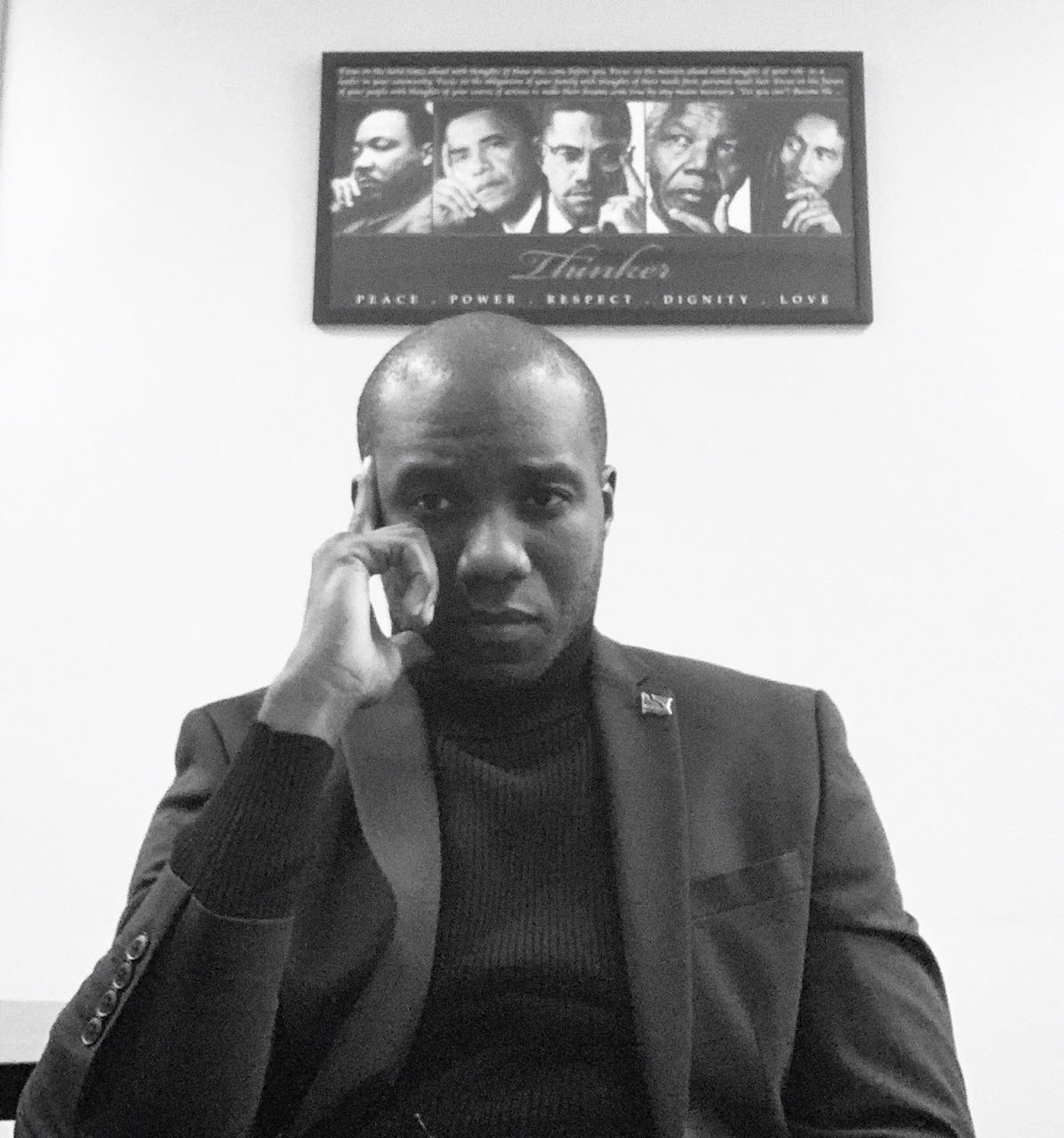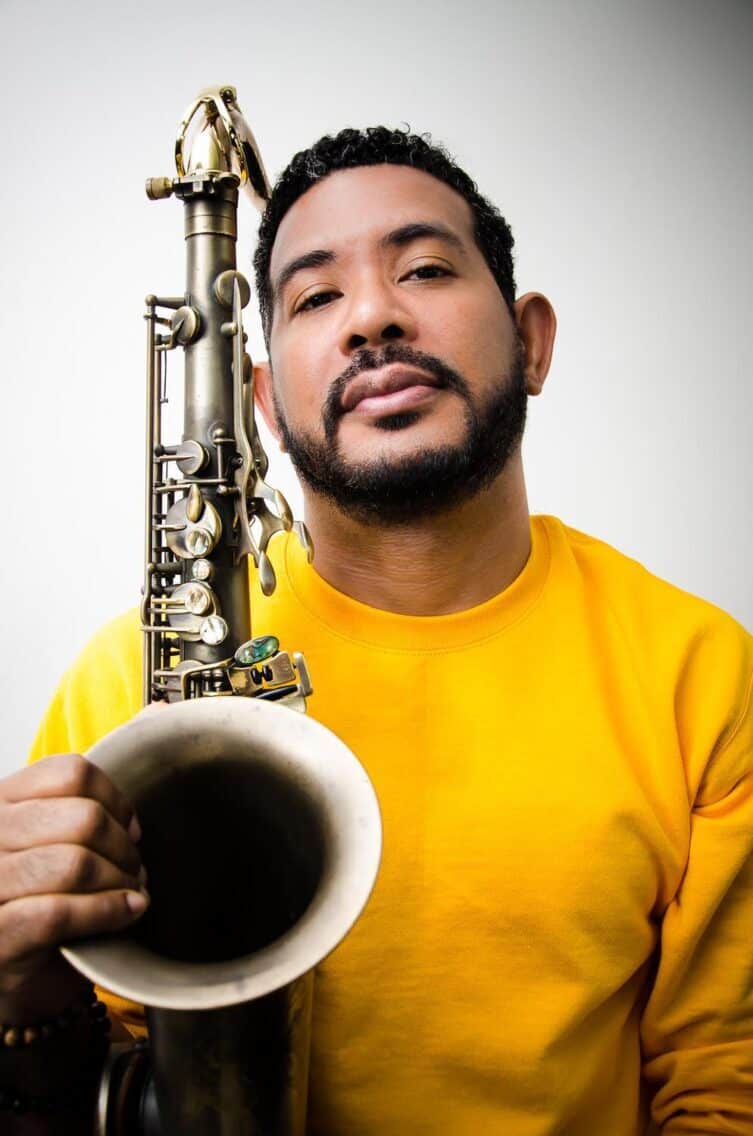Dr. Jamille Broome
There’s a school of thought that measures success by status. However, Dr Jamille Broome prefers to focus on the struggles associated with the journey. This jurist and educator opted to use his law degrees to be part of the solution and not the problem. Instead of private practice or working for a multi-national organisation, he decided to blend his passion for education and mentorship with his desire to use law to improve the employment conditions in the country. This self-professed youth “troublemaker” believes that life is a circle and now, he is more focused on the lessons not the losses. Here is Dr Broome’s MENtions story:
–
I could write the perfect story that only celebrates accomplishments, achievements and accolades but quite frankly, my journey to become Dr Jamille Broome was not an easy one and had it not been for my tenacity to overcome adversity, challenges and failures, I would never be who I am today.
At a very young age, societal teachings led me to believe that the odds were not stacked in my favour because I was the son of a Laventille-born mother and a Tobagonian father, both of whom had secondary education and lower-level employment at the Public Transport Service Corporation. In a way, I even lived up to society’s false narrative of black males by being rebellious at various points. My behaviour ultimately led to several suspensions from both Richmond Street Boys Anglican School and St. Anthony’s College.
“Giving trouble was my forte”
For the litany of misdeeds, each parent punished differently. My mother’s method was “licks” and isolation with a library of books like The Hardy Boys collection while my father preferred to have me learn and recite entire pages of words, their spellings and meanings from the dictionary. Ironically, these forms of “punishment” made me fall completely in love with reading and writing, which meant that at school and at Rosary Boys’ lessons classes, I was, dare I say, untouchable when it came to those subjects. Academically, I was fine but giving trouble was my forté. Even the years of strict discipline in Cub Scouts, Scouts and eventually, Cadets at Queen’s Royal College had little impact.
After my 13-year-old sister passed away and two months after completing CXC, my mother and I migrated to Maryland, USA to live with my older sister. I was fifteen years old and willingly disobedient, yet precocious without much guidance, so I spent my mornings watching the Judge Mathis and Judge Judy TV shows and my afternoons, on the local basketball court as “Jamaican Jordan”. Maybe I should have taken a hint from my affinity for these court shows that law was my destiny, but I guess life eventually works itself out.
“It was love at first class”
When I eventually started looking at my college options, I was set on attending a Historically Black College/University (HBCU). I initially selected Elementary Education as a degree option because I saw an opportunity to influence and mentor young children the way my teachers did with me, but after an internship at an inner-city Baltimore elementary school, I quickly switched to something I thought would be less stressful. Kudos to all the teachers and educators who have remained committed to the huge tasks. Years later, in my junior year of a degree in Business Administration at Morgan State University, I discovered law and it was love at first class. It didn’t take long to plan a move to England to attend law school and by the time I was finished at the University of Hertfordshire and then Middlesex University, I had one business degree and two law degrees and on my way back to T&T in my late twenties without money, a job or a plan.

“I wanted to be part of the solution, not the problem”
Most people believe that after law school, the only road is a life of private practice. However, that was never my interest because I couldn’t see myself fighting for the rights of remand prisoners and fathers in the family court whilst knowingly benefiting financially from the injustices meted out to them. I wanted to be part of the solution, not the problem. However, that principled stance meant that I struggled to find a job. There were times when I literally had more degrees than meals. While my immediate family all lived in the US, unaware of the struggles, my ego had me enduring on my own… I eventually swallowed my pride (as we love to say here in T&T) and I finally reached out to my mother, who loaned me $50k.
Admittedly, I was extremely cocky, but that experience and low point reminded me to appreciate the people who assisted me when I needed them: parents, siblings, friends, exes – the latter may come as a surprise, but I was really fortunate to have some extremely amazing and supportive girlfriends as I went through life.
“I had no connections, no links, no entitlement”
Upon returning home though, I knew for certain that my passion was for mentoring, teaching, human rights and the legal aspect of Human Resources – i.e., employment & labour law. I applied to every government Ministry, The UWI, the United Nations and the International Labour Organisation, but as superior as I thought my foreign education was, I failed to impress a single prospective employer. I had no connections, no links, no entitlement and no inheritance. I had none of the above but despite how difficult the first year in T&T was for me, I’m thankful I didn’t have any of those because that is what propelled me to work harder and smarter to pursue and attain my goals.
“Life is a circle”
Life does indeed come full circle because I fell in love with law as a non-law student and now I lecture law to non-law students at The UWI. When I walked into my first ever class as a Lecturer, I was younger than 90% of my students – a situation that helped me to quickly build confidence towards mastering the arts of pedagogy and andragogy. That percentage has definitely reduced, but the fact remains that as a still relatively young lecturer, each class is like a new probationary period because older students will always challenge my knowledge and the younger students would continue to question my experience, but being ready and able to deal with this is what I think, makes a great educator.
“I want my students to leave competent not capable”
Teaching law to non-law students is a challenge because the level of critical thinking required makes the courses more intense than many other modules and for some it is a shock that I would have such high expectations of them. In my class, there are no research essays to copy and paste from the internet; all assessments require the application of legal principles to real life scenarios. Simply put, grades must be earned because I want each student to leave my class competent, not capable. Additionally, I try my best to be supportive and a role model for all of my students, especially the young men in whom I see myself. I had no real role models throughout the years except the ones I saw on TV: Judge Greg Mathis, Barack Obama and Nelson Mandela, whose alma mater I made it my business to attend for my doctoral studies because I knew that it could be the closest I would ever get to such greatness.
“I eh reach yet”
Indubitably, with three law degrees, a career as a legal practitioner at the Industrial Court and a lecturer at the Caribbean’s premier university may, to some, engender the notion that “ah reach,” but I am not even close. The lesson here is not to be discontent or avaricious but to never become complacent.
“Ah L is no longer a loss, ah L is a lesson”
Regardless of what I’ve accomplished, I want everyone reading this to understand that I attribute my success to the fact that I have failed and made mistakes over and over because that is how and where growth occurs. As Machel Montano so wisely stated in his song High Life, “ah L is no longer a loss, ah L is a lesson”. These lessons are what taught me to be resilient during my lowest points and toughest periods. At this stage in my life, my losses are now lessons in learning, loving and living towards leaving a legacy.


